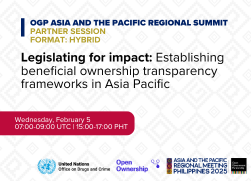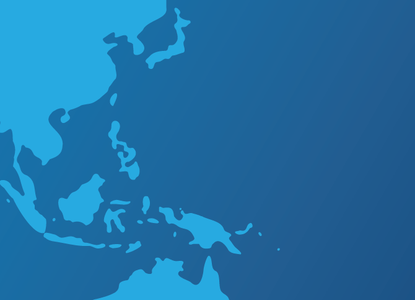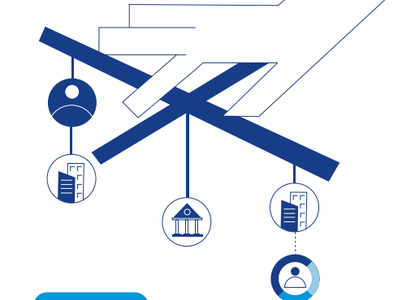Advancing beneficial ownership transparency in South East Asia
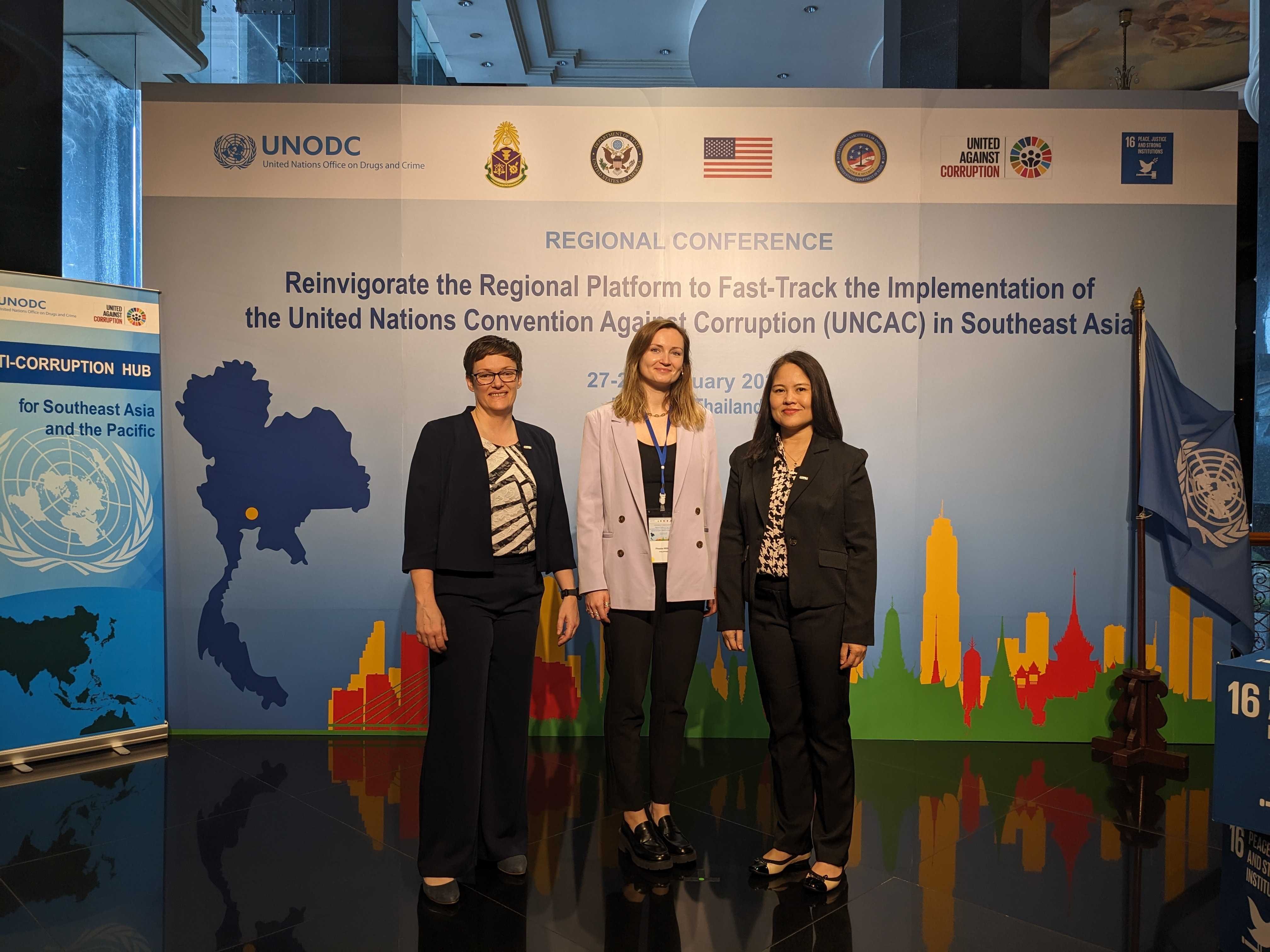
Open Ownership staff members Louise Russell-Prywata, Phoebe Williams, and Emily Manuel at the South East Asia regional event.
South East Asia remains one of the fastest-growing regions in the world economically, having witnessed a steady flow of direct foreign investment in recent years. However, despite its economic growth, development in the region remains slow, owing to corruption and governance shortcomings. While all 11 countries in the region have signed the United Nations Convention against Corruption (UNCAC), which contains provisions to advance beneficial ownership transparency (BOT); governments have struggled to deliver on these anti-corruption efforts. As a result, regulations and systems on BOT remain unevenly developed, with 5 out of 11 countries still in the process of putting in place a legal framework for BOT.
Following the resolution on beneficial ownership transparency at the 10th Conference of the States Parties to the UNCAC (December, 2023), Open Ownership (OO) joined government representatives from Brunei Darussalam, Cambodia, Indonesia, Lao PDR, Malaysia, Mongolia, the Philippines, Thailand, Timor-Leste and Viet Nam on 27-29 February 2024 at a regional conference to fast-track implementation of the UNCAC. The event was organised by the United Nations Office on Drugs and Crime (UNODC) through its regional hub in Bangkok, Thailand.
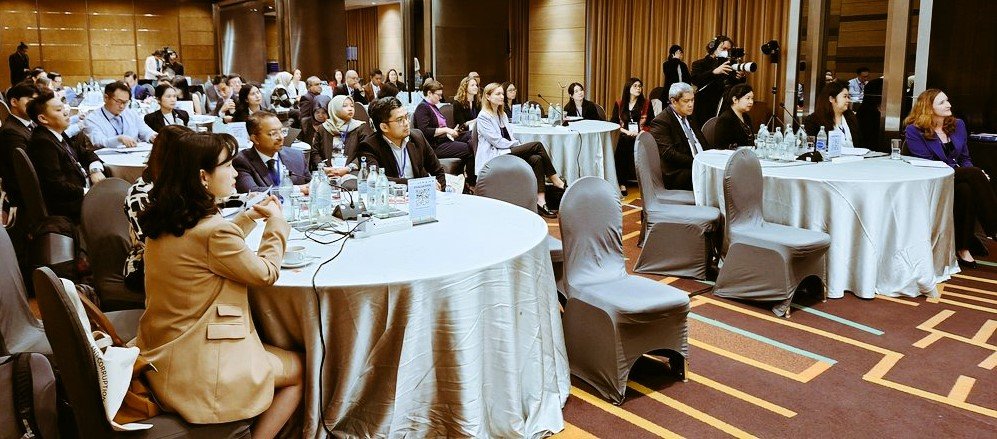
Representatives from multiple countries in South East Asia attended the regional event.
Through facilitating discussions with experts from anti-corruption authorities, company registration authorities and procurement authorities, OO worked with the delegates to combine their knowledge to map key gaps in BOT across the region and identify pathways to strengthen implementation. The resulting regional roadmap has been published by UNODC.
The use of technology to combat corruption was a key theme of the event, with several participants highlighting how having access to relevant information in structured, machine-readable data formats could transform the efficiency of their anti-corruption work. This is a focus for Open Ownership’s technical assistance to countries in the region – including Indonesia and Philippines – and we took the time to learn more both from delegates from these countries and from others in the region.
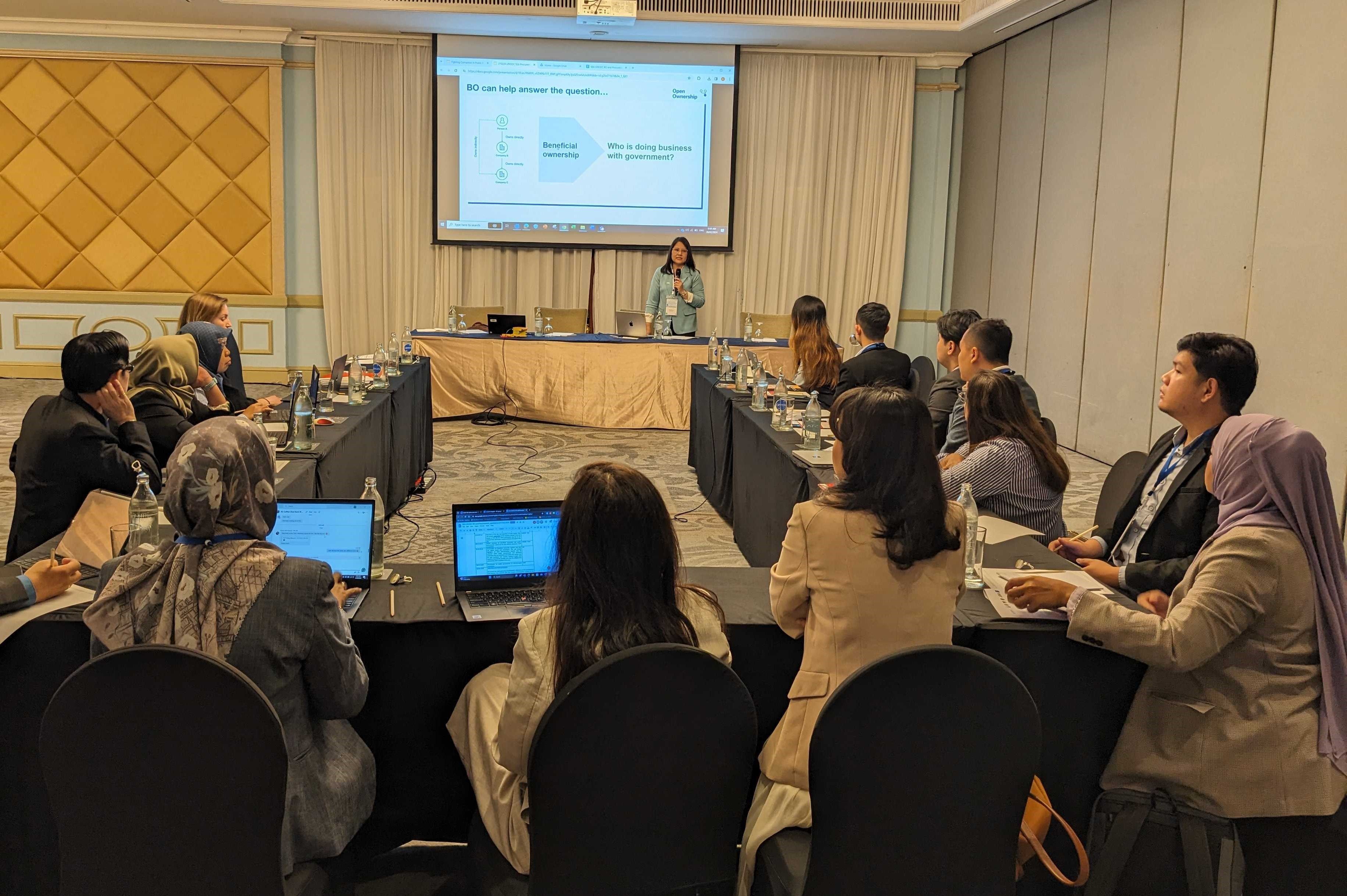
Emily Manuel, Open Ownership’s Regional Manager for Asia Pacific speaking in a thematic session on advancing the implementation of BO provisions in the UNCAC
Strengthening integrity in public procurement emerged as a key driver through which beneficial ownership (BO) reforms can be advanced in the region. Implementing systems for BO data-sharing and interoperability were likewise identified as necessary to achieve these aims.
Alongside our collaborator Open Contracting Partnership we shared examples of how other regions are using BO information within procurement, and how open source technologies such as the Beneficial Ownership Data Standard and Open Contracting Data Standard can be used together to deliver impact.
Louise Russell-Prywata, Deputy Director of Open Ownership, spoke of how beneficial ownership data can be used in various "low-tech" ways to realise impact. She highlighted that tech tools which use standardised data can hugely scale up what we can expect to achieve using BO information, for example by linking BO and procurement datasets using software to automatically detect red flags for corruption risk.
However, despite these ambitions, several participants discussed the challenges they faced in implementing the BO provisions from the UNCAC; including the lengthy timeframe of putting in place the necessary legal framework, to the difficulties of making decisions about who should have access to the data held in BO registers.
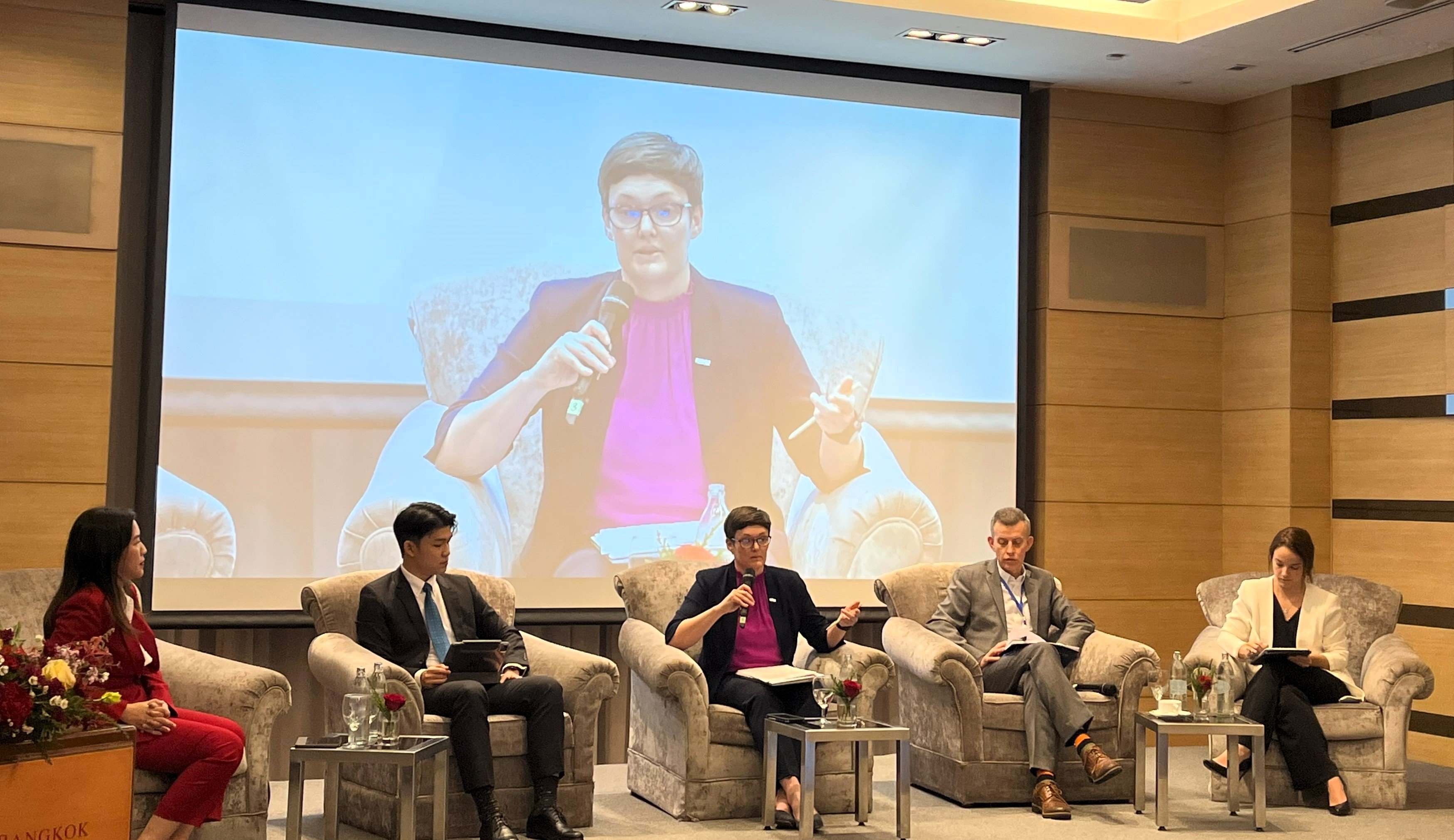
Louise Russell-Prywata, Deputy Director of Open Ownership, speaking at the regional event on a thematic panel on the role of technology and data in anti-corruption.
For OO, events like this help us situate our ongoing technical assistance work with specific countries in a wider regional context, and provide us and government representatives from the region with valuable opportunities to connect and identify common threads in our work. It is also an opportunity to connect deep technical work taking place at national level with activities that are underway elsewhere.
This work is part of OO’s partnership with UNODC, funded by Norad: working at the international and national levels to advance implementation of BOT commitments in the UNCAC.
Related articles and publications
Publication type
Blog post
Country focus
Indonesia,
Cambodia,
Brunei Darussalam,
Lao People's Democratic Republic,
Philippines,
Thailand,
Timor-Leste,
Mongolia,
Vietnam,
Malaysia
Sections
Implementation
